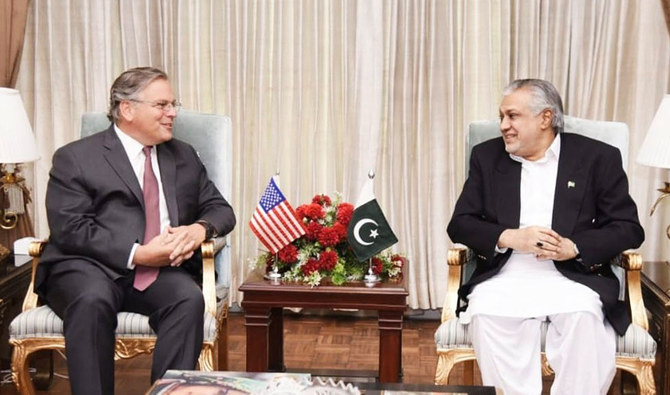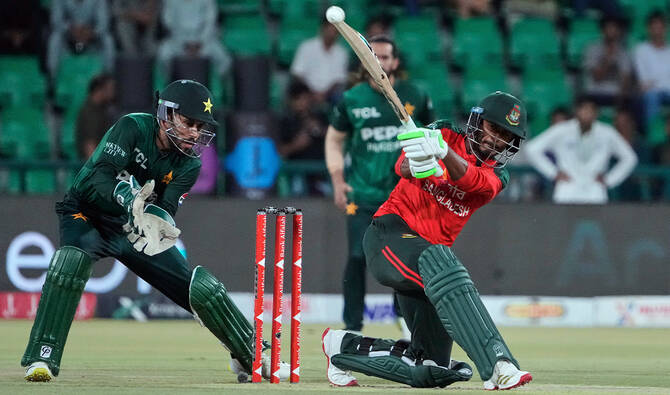ISLAMABAD: Pakistan’s Finance Minister Ishaq Dar on Friday called on US Ambassador Donald Blome and shared with him the government’s policies for growth and stability, Pakistani state media reported, amid an economic meltdown in the South Asian country.
Pakistan has been making desperate efforts to secure a $1.1 billion loan tranche from the International Monetary Fund (IMF), with its forex reserves dropping to critically low levels, currency depreciating and inflation hovering at a historic high. The funding is a part of a $6.5 billion bailout package the IMF approved in 2019, which is due to end in June, prior to the budget.
Negotiations over key budget targets such as the fiscal deficit are one of the last hurdles before the IMF approves a staff-level agreement to release $1.1 billion in funding, which has been delayed since November, that is crucial for Pakistan to resolve an acute balance of payments crisis.
During the meeting, Dar and Blome discussed matters of mutual interest and enhancing the existing bilateral relations between both countries, the state-run APP news agency reported.
“He (Dar) shared economic policies and priorities of the government to address the challenging economic environment and set the economy to stability and growth,” the report read.
“He informed Ambassador Blome about the government’s pragmatic plans related to revenues and expenditures for meeting its national as well as international financial obligations.”
Since January, several rounds of talks between the IMF and Pakistan have failed to revive the program, leaving the cash-strapped South Asian nation with barely a month’s cover for import payments.
The situation has led to fears of a default on the country’s international financing obligations as the IMF program nears its expiry on June 30.
Ambassador Blome expressed confidence in the policies and programs of the government for economic sustainability and socio-economic uplift of the masses, according to the report.
He extended his support to further promote bilateral economic, investment and trade relations between both countries.

















